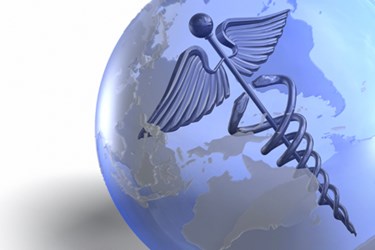Can mHealth Ease The Ebola Crisis?

By Christine Kern, contributing writer

Employing mobile health solutions could speed the response to a global health crisis.
The Ebola outbreak in Liberia, Sierra Leone, Guinea, and Congo raises the question of whether mobile health can play a role in easing this type of health crisis. Information Week makes the case that mHealth could be tapped into to offer a way to trace the disease’s spread and help diagnose it.
The World Health Organization (WHO) declared Ebola an international public health emergency on August 8, 2014, and the number of cases of Ebola continues to rise in West Africa. As of August 22, there have been over 2,600 cases and nearly 1,500 deaths reported from Guinea, Liberia, Nigeria, and Sierra Leone. According to WHO, there is some evidence that these numbers may be vastly underestimated. (For the latest numbers, see the Centers for Disease Control and Prevention (CDC) 2014 Ebola Outbreak in West Africa web page.)
“Practical on-the-ground intelligence is the backbone of a coordinated response. WHO is mapping the outbreak, in great detail, to pinpoint areas of ongoing transmission and locate treatment facilities and supplies," says WHO. "CDC is equipping the hardest-hit countries with computer hardware and software that will soon allow real-time reporting of cases and analysis of trends. This also strengthens the framework for a scaled-up response."
So how can mobile health tools help in combatting the spread of the epidemic?
Access To Mobile Technology Is Growing Fast
One advantage for the potential of mobile health in African countries is that Africa has had a rapidly growing number of mobile subscribers in the past decade. Mobile phone users are expected to reach one billion by 2015.
Traceability
Geo-referenced, real-time maps of infected patients could be key to tracking and controlling the spread of the virus. By providing epidemiologists data on positive diagnoses, confirmed vectors, they could serve as especially useful planning tools.
Smartphone diagnostic devices
This technology would be an enormous help in this public health emergency. After all, providing greater access to medical testing for underserved communities is why many healthcare startups like Biomeme got started in the first place.
Availability of mHealth apps
Although access to mobile technology is spreading in sub-Saharan Africa, the technology must be at hand, the applications affordable or free, and importantly, connectivity must be available. With Africa boasting the fastest growth in mobile subscribers in the past decade – predicted to reach one billion by 2015 – technology requirements shouldn't be a restriction. In addition, many leading mobile and service providers are offering low-cost smartphones and broadband to encourage usage.
GSMA, the trade body representing mobile operators, has recently appeared in the press touting its Mobile for Development mHealth program, which aims to help African countries reach many of the United Nation's millennium development goals. This program is a shining example of how mobile applications and smart technology are being used today to facilitate, track, and share healthcare information in resource-poor areas.
What needs to happen is that these technologies should be fast-tracked to assist in the Ebola outbreak. A handful of applications already exist that allow users, aid workers, and other medical practitioners to test and share results for illnesses such as HIV, malaria, and flu using only a smartphone. They could also be used to test and track Ebola. Geo-referenced, real-time maps of infected patients could be key to tracking and controlling the spread of the virus. In a potential global crisis such as this, the World Health Organization has already called on governments to use exceptional measures, and the US FDA has bypassed its normally rigorous approval processes to fast-track military technology for civilian use.
